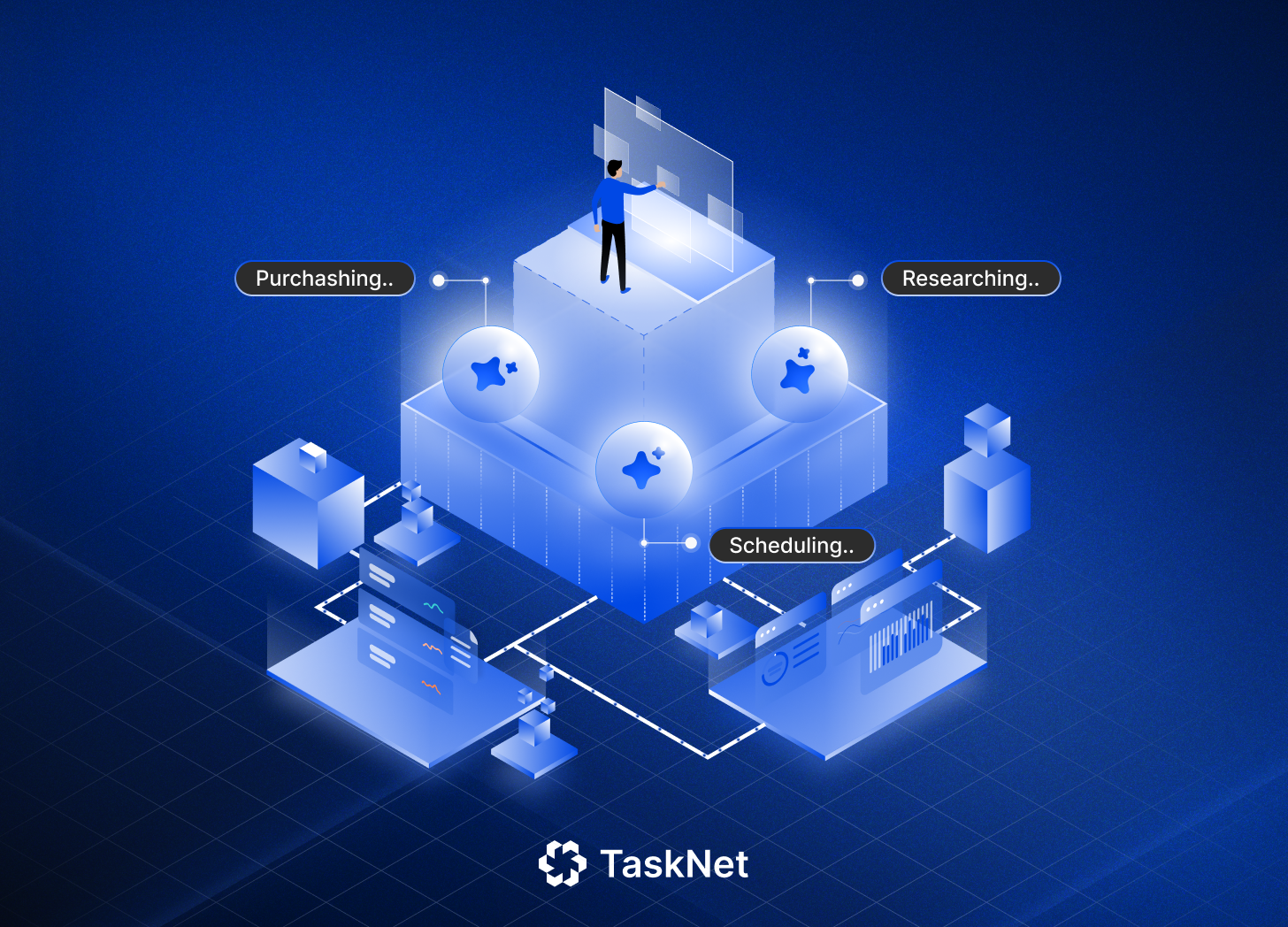AI agents are evolving at breakneck speed, doubling their capabilities every few months and autonomously tackling tasks that are increasingly complex and ambitious. But there’s a glitch in today’s internet: agents are tripping over every designed-for-human hurdle we’ve left behind; and they’re everywhere. Passwords, CAPTCHAs, and credit cards represent a digital obstacle course designed for us, not them.
Today’s internet does not like bots, many companies are dedicated to block and stop agents from accessing content on the internet.
But Agents are bots! And agents are a legitimate form of internet use that demands more: smarter AI and an infrastructure with instant API access, micropayments, and permissions that don’t require human approval.
By 2030, agents will dominate online activities. But for now, the web’s legacy infrastructure is nowhere near ready for what’s coming. Change comes slowly—then suddenly. It begins by retrofitting the present, and unfolds as the missing infrastructure puzzle pieces come together until a new agentic internet takes shape.
Near Term: Hacking the Human Web
As AI agent usage grows, developers are racing to wrap the human-first web in machine-readable layers, parsing text and restructuring it into consumable APIs that enable websites to be used by agents. AI agents are using passwords for user-permissioned access to access data behind the login. It’s clunky, but it works for now.
There are also some bold attempts to introduce agent micropayments as a form of authentication replacing API keys. The Coinbase x402 protocol updates the standard HTTP flow to support machine-native interaction. Instead of requiring developers to manually apply for an API key, x402 allows a server to respond with “402 Payment Required.” An agent can then send a small, stablecoin payment on the spot. This new protocol seamlessly integrates payment with access control and licensing, fitting neatly into existing infrastructure.
With the rise of zero click search engines like Perplexity and chatGPT, Cloudflare is offering content creators a way to monetize access by charging AI crawlers to pay per crawl. In the agentic internet, micropayment is a fundamental piece of the internet moving forward.
Medium Term: The Rise of the Agent Economy
As agent access becomes more structured, their behavior will level up from single automation to coordination. They’ll begin to compose services, trigger downstream tasks, and negotiate across systems on behalf of users. The glue for all of this? Micropayments: tiny, instant transactions that turn the web into a marketplace where agents will transact automatically. No prearranged contracts needed.
Imagine your agent needs a premium data feed. Instead of prompting you for a card, it pays a fraction of a cent straight to the source. One agent buys a real-time stream from another. A planner pays a specialist to crunch numbers. In these contexts, micropayments bundle payments, trust, and licensing all in one.
Today, content creators exchange their work for traffic and ad revenue. Agents consume information directly and summarize it, but as agents proliferate, that attention – and the ad economy it drives – will vanish.
As ad revenue dries up, micropayments will represent a new deal for digital content. Every time a creator’s work fuels an agent’s response, micropayments award them an instant payout. It’s fair, streamlined, and the backbone of tomorrow’s online economy. In this agent-driven internet, every website becomes an API, seamlessly feeding value to those who power it. In this phase, every website will have two versions: one for humans and one optimized for AI agents. And we’re already seeing the start of that with MCPs, A2A, Agent.txt and LLM.txt.
Long Term: Protocols Replace Interfaces
As coordination becomes the norm, the final shift takes shape. Your Agent becomes an extension of you running your digital life. Instead of waiting for clicks, systems begin to expose capabilities directly. Your agent authenticates on your behalf, manages subscriptions, downgrades unused services, and even coordinates with other agents for larger jobs, paying and licensing on the fly.
But this future depends on deep structural change. Agents won’t flourish in an internet that treats them as bots. They’ll need environments that grant them scoped authority, expose machine-parsable capabilities, and enable smooth per-use value transfer.
The Agentic Internet will be powered by web3
The agentic internet hinges on authentication and micropayments are core primitives of Web3 that weave trust and value into every interactions and transactions. Builders will move from mimicking human clicks to systems that treat agents as customers and collaborators. This requires infrastructure where agents authenticate seamlessly and pay instantly, unlocking an autonomous agent economy.
The Agentic Internet is, at its core, a crypto-native internet. And moving forward, the internet will not function without authentications and micropayments.


